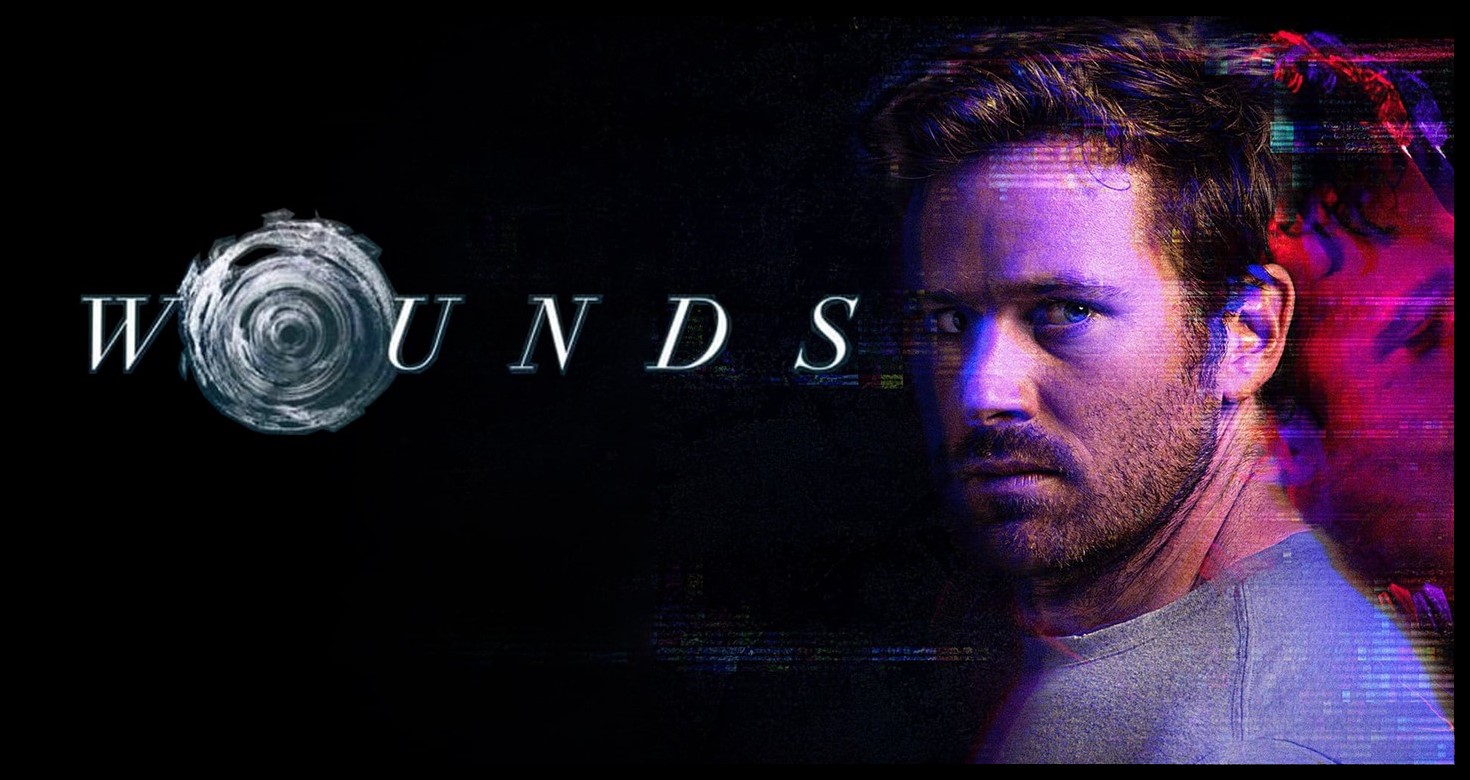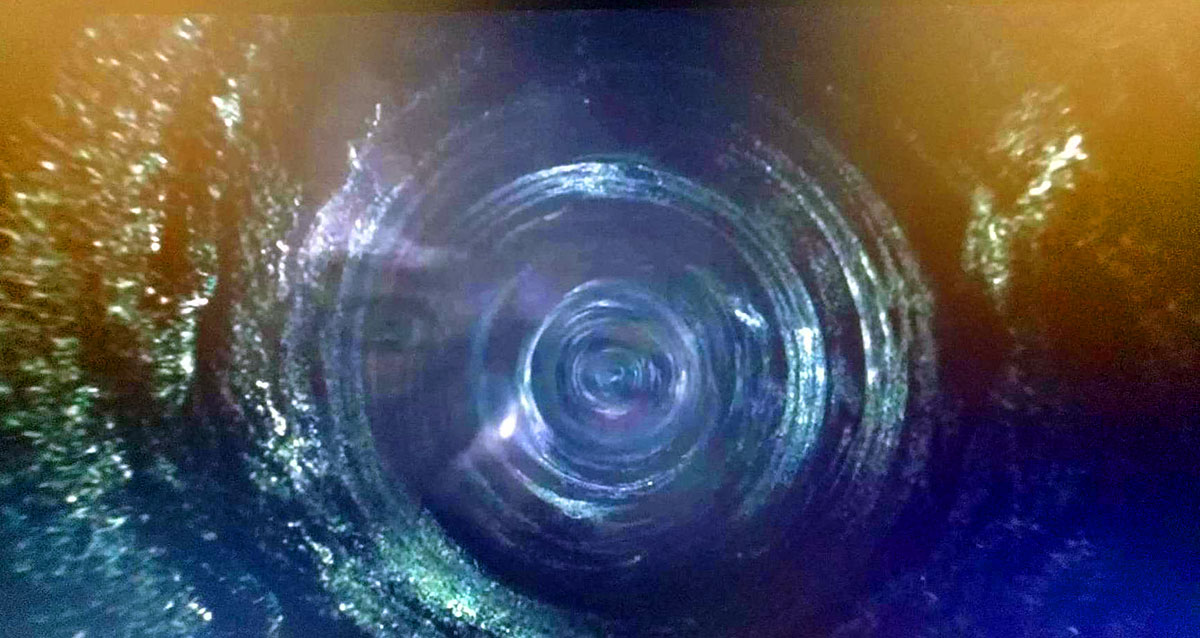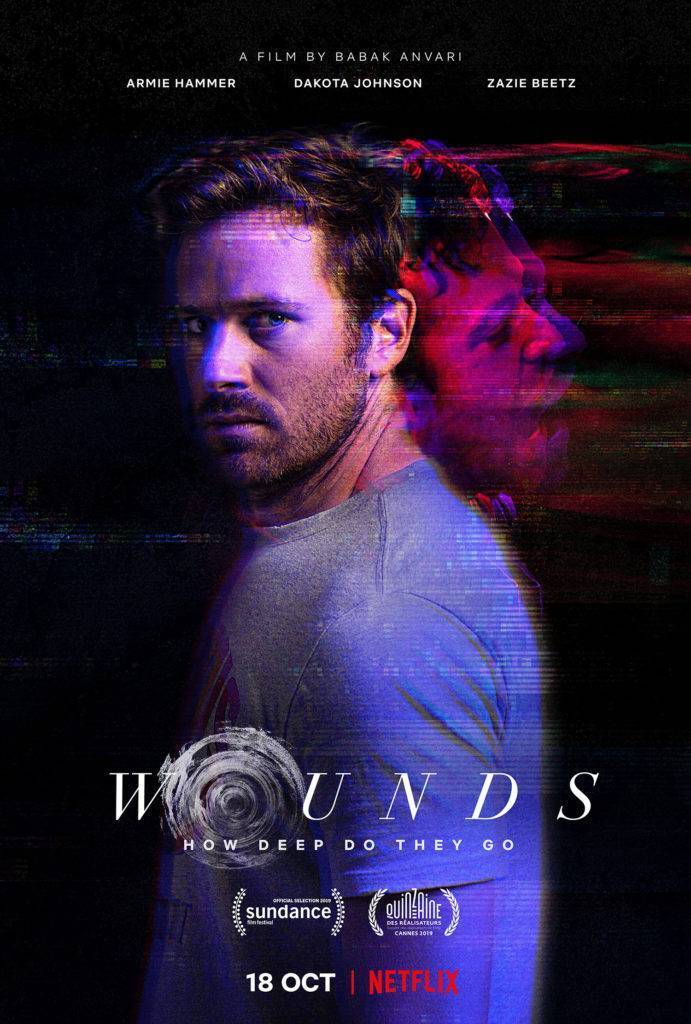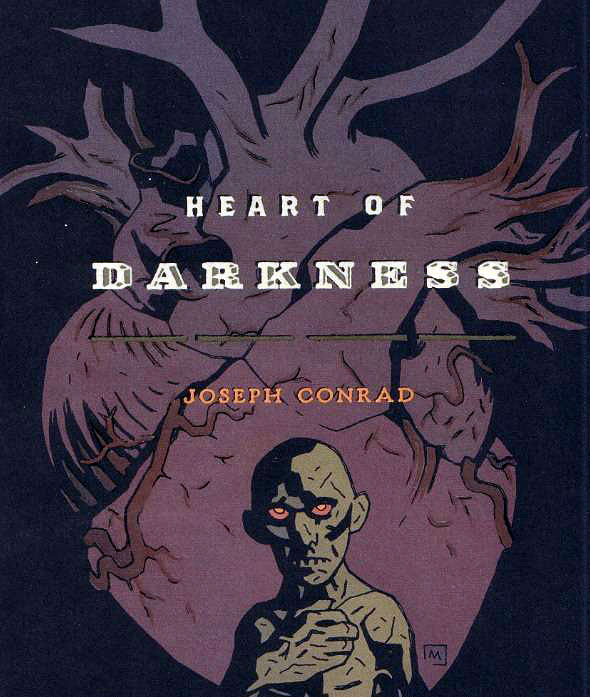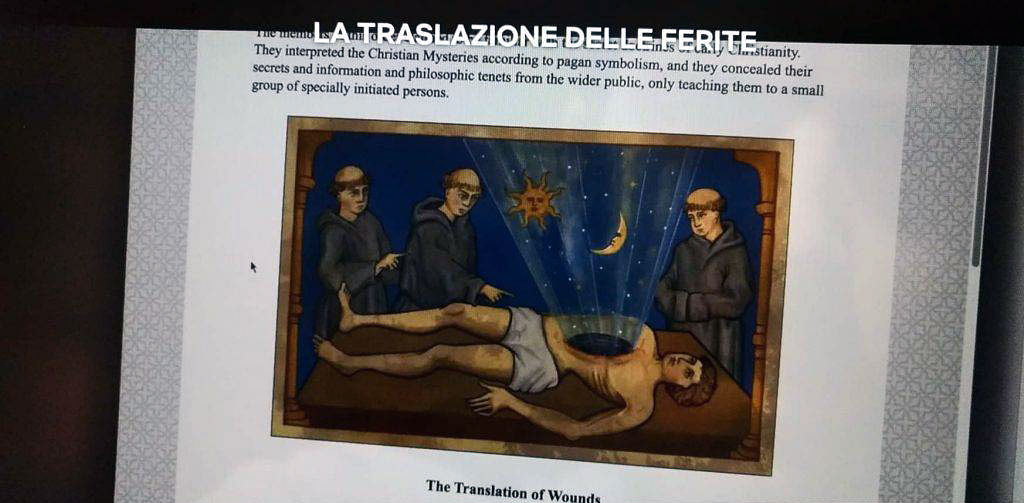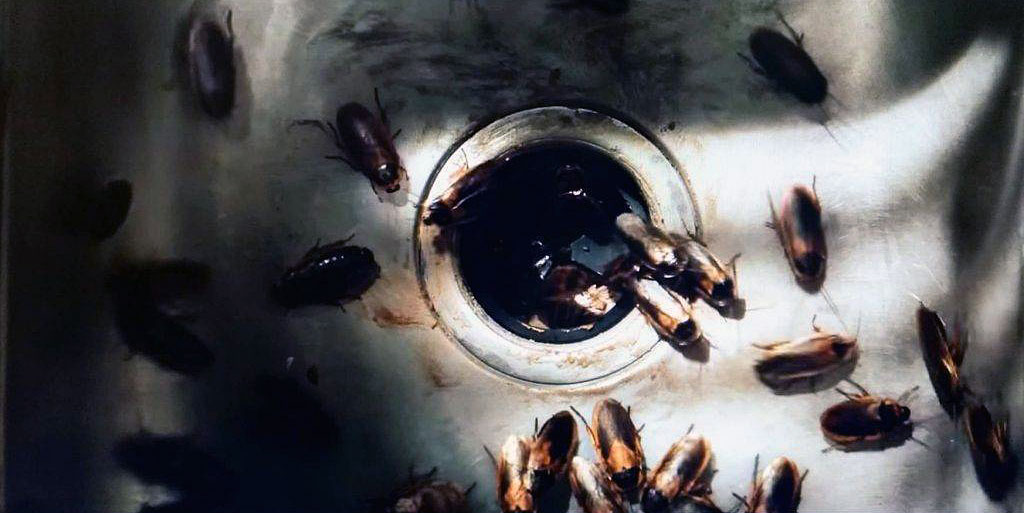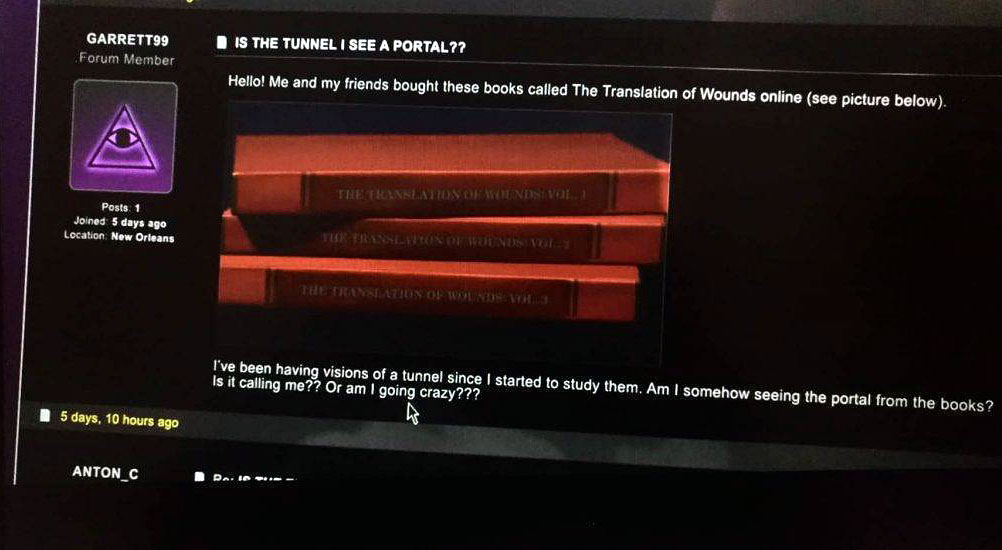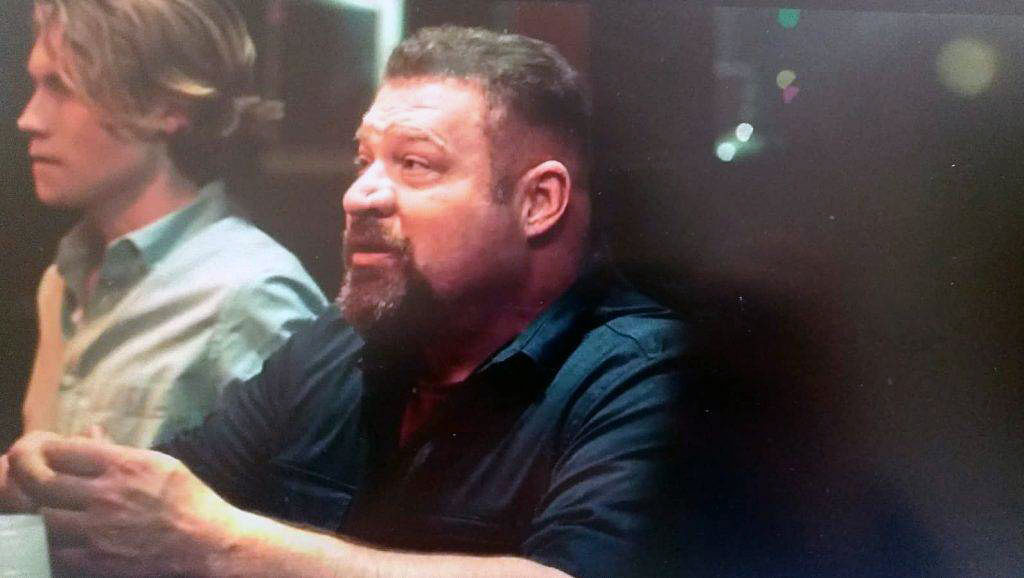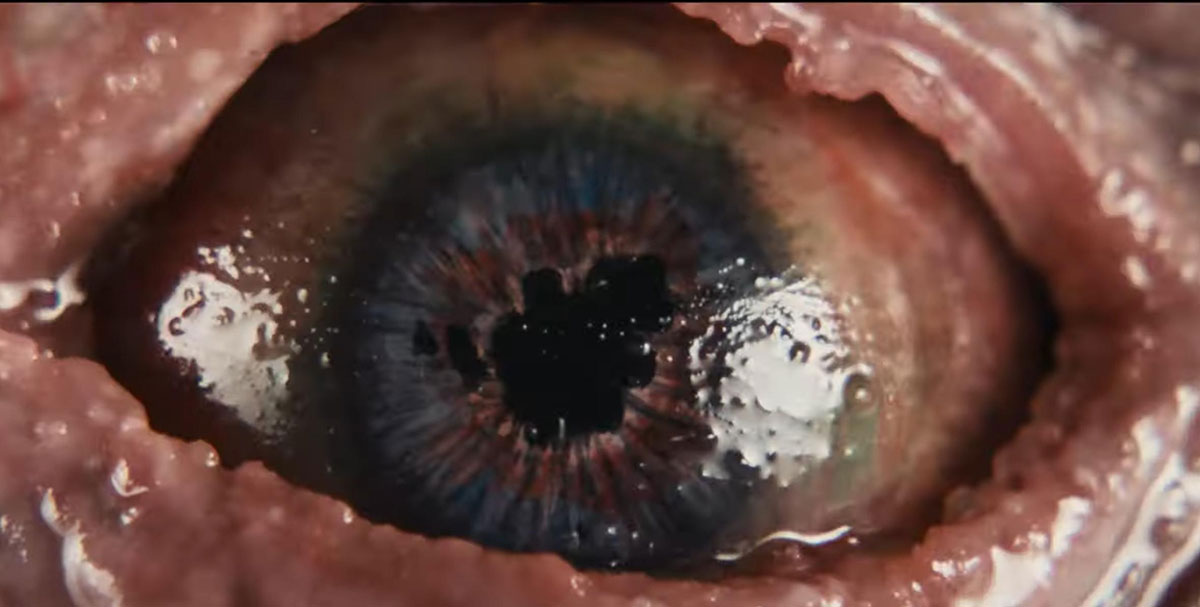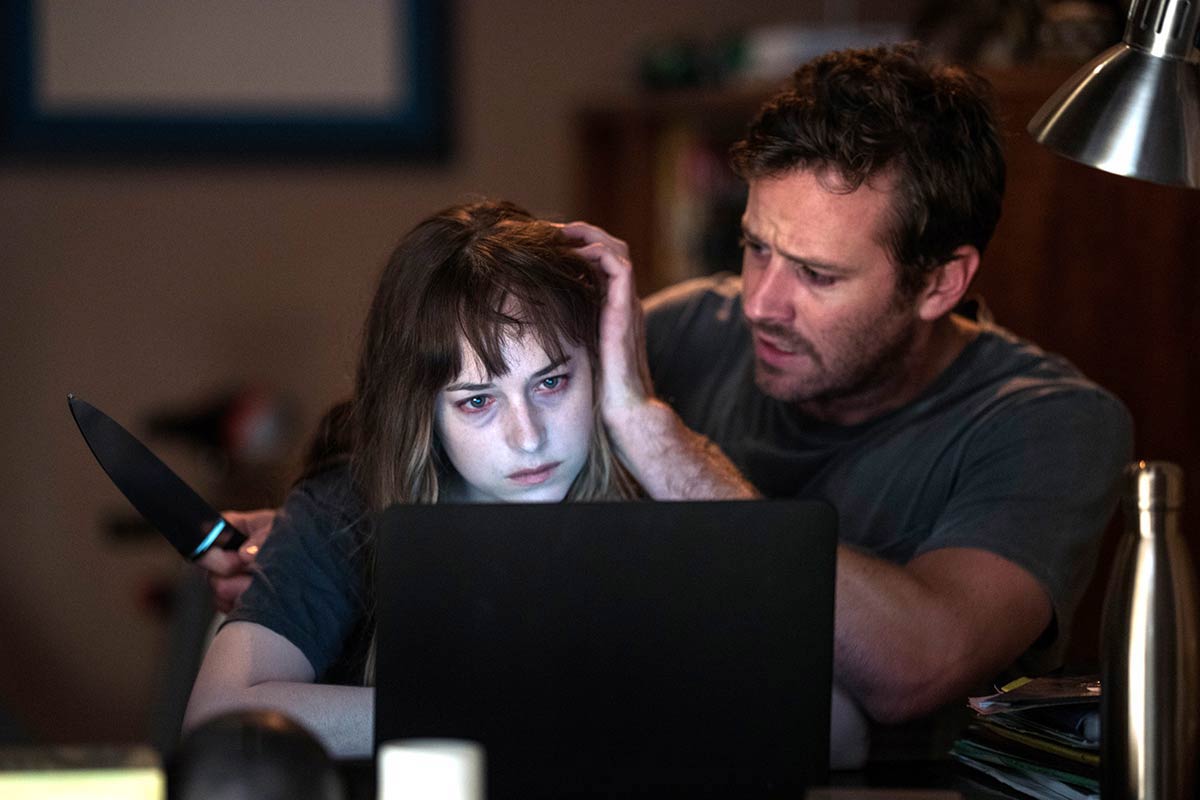”There is a rather different movie, which gravitates to the famous Netflix platform: honor and merit to the same for having included it in the schedule. It's "Wounds", by Babak Anvari.
Lorenzo - Daniele Pieraccini
Wounds by Iranian director Babak Anvari is a curious experiment that analyzes the esoteric world in
an exoteric key, that is, using a material vision to explain what is intangible.
After the umpteenth viewing of this movie, which we really like, we talked and indulged with friends on the various interpretations of the messages that this work suggests.
Viewing of the film is required before proceeding with the reading. This is both to understand what
we are talking about, and because there will be continuous spoilers in the article.
Wounds: The plot
Will is a bartender at a New Orleans club. One evening, during his working hours, a fight breaks out between Eric – a regular customer of the place – and other visitors. The chaos created and having called the police causes the rapid disappearance of all those present. Among the latter, there is also a group of very young people who, after having resumed the fight, run away forgetting a cell phone.
Will, without thinking too much, takes home the cell phone decided to contact the boys to return it, finding in it a shocking video. This will cause the start of strange events that will coincide with the end of all rationality in Will’s life.
In the article we will propose different levels of reading of the film.
Heart of Darkness
The movie begins by quoting Conrad’s “Heart of Darkness”, a novel that depicts evil as unaware of itself, in this pointing to the protagonist with his emptiness confused by the siege of absurd and unknown that he doesn’t understand if it has an external origin or comes from within himself.
“I think it had whispered to him things about himself which he did not know, things of which he had no conception till he took counsel with this great solitude – and the whisper had proved irresistibly fascinating. It echoed loudly within him
because he was hollow at the core.”
Joseph Conrad – Heart of Darkness (incipit of the film Wounds)
…Gli aveva sussurrato cose su di lui che egli stesso ignorava, cose che neppure sospettava… e quel sussurro si era rivelato irresistibilmente affascinante. Echeggiava forte dentro di lui poiché egli dentro era vuoto.
Joseph Conrad – Cuore di Tenebra (incipit del film Wounds)
Wounds
we introduce the meaning of “wound”: a term that in the English language is the most generic to define the concept.
Wound can be a wound inflicted on living tissue, but it can also have a moral connotation.
It can indicate a problem, a great unhappiness, a stress caused by someone else or something.
An emotional or psychological state, in short, and the director moves among all the possible meanings, touching and connecting them together
and developing a highly mental and metaphysical horror.
“Do you know what you really want? Nothing. Because there is nothing that can satisfy you. You are a bad person, you are just a body. “
Carrie, Will’s partner, after the breakup
«Sai cosa vuoi veramente? Niente. Perché non c’è niente che ti possa soddisfare. Tu sei una brutta persona, sei solo un corpo.»
Carrie, la compagna di Will, dopo la separazione
Bugs
What do the cockroaches that infest the environments in which the story takes place represent and which are more and more numerous and intrusive as the horror grows?
Are they depictions of the impure, of the persistence of evil, are they symbols of psychological and relational distress (as in Kafka) or are they heralds of the supernatural? Are they somehow related to the alcoholic habits of the protagonist?
“Today there seem to be more cockroaches than customers”
Will, the parallelism between people and cockroaches
«Oggi sembrano esserci più scarafaggi che clienti»
Will, parallelismo tra persone e scarafaggi
Post-traumatic stress and hallucinations
Are the violent and nightmarish images that overlap reality due precisely to Will’s alcoholism or some psychological disorder resulting from trauma?
Just as cockroaches (protagonists in fact of many of the character’s hallucinations) grow with the increase of horror, so suffocating paranoia and delusions of persecution develop like terrifying visions.
Gnosticism
The film is not about a generic supernatural, in fact Anvari goes fishing in the Gnostic tradition, combining mysticism and violent and horrifying rituals and effectively placing these elements in an urban and contemporary context.
It is important to understand what Gnosticism is: clearly derived from the Theosophical Secret Doctrine (of which it is a distorted reworking), this current of thought, broadly speaking, defines the world in which we live as the result of an error of an eon ( superior beings emanating from the Divine, which all together form, divided into male / female pairs, the Pleroma).
The error in question led to the creation of the Demiurge, or a false God or evil deity, creator in turn of material reality and “great deceiver”.
Consequently, for a Gnostic, enlightenment (or discovery of the authentic divine) is obtained through learning the esotericism or hidden reality of the world.
Some Gnostic currents think that all human beings carry the divine spark within them, others argue that it is instead the prerogative of only some of us and divide men into three types: hylics, psychics and pneumatics.
The hylics, or somatics, are those who are linked exclusively to the material world and destined to disappear with the flesh, the psychics are those who are endowed with soul and free will and have the possibility of incomplete redemption and of ascending, one day, to the divine together with the demiurge or dissolve like hylics; pneumatics are men in whom the divine spark (pneuma) has been hidden, unbeknownst to the Demiurge, and are destined to reunite with the divine.
The Demiurge creates man as a “tunic of empty skin”, unaware of transmitting his psychic nature to some of them and that some even conceal the pneuma.
Will as the personification of the psychic man
Will is clearly a psychic man who brings with him the urge, the urgency, the “bite” to evolve: floating in hylic materialism, he seeks something more and drowns his dissatisfaction in the search for easy earthly gratification. But the inner urge does not give him peace, starting to shatter his life of convenience.
And after yet another confrontation with his partner Carrie, who accuses him of being just an empty body, he feels the angry pull to get out of this hylic stalemate. Carrie will then prove that she herself is a surrendered psychic who will end her path in hylic dissolution, totally falling prey to the abyss that will drain her of the vital spark.
But is it the urge that is tearing up Will’s life, or is it he who, in the throes of suffering, is choosing the easy way (like Cypher from The Matrix), choosing to return empty shell and therefore a perfect accommodation for an evil entity, which is only accelerating events and “transformation”?
The “demiurge” Will, wrapped (another of the possible meanings of wound) in his isolation and “wounded” in the soul by the consequences of his inability to have functional and genuine romantic relationships, finally finds the divine spark that will heal and complete him. He will find her wrapped (again) by the body of the injured person, physically and not only, Eric, in a riot of cockroaches and with the supervision of the eye-symbol.
Will then took the necessary steps to obtain divine knowledge through Eric’s “blood sacrifice” (see also the movie “Branded” with the sacrifice of the red beef for the purpose of achieving clairvoyance). This offering leads him to pass from “empty body” to bearer of “divine spark” (“Heal me and make me complete!”). And he is now the bearer of the demiurge.
In his work Babak Anvari combines all these levels while maintaining a remarkable balance, allowing the viewer to interpret the story by favoring this or that element, depending on his sensitivity and the reading tools he possesses.
Other important elements are The Nietzschean abyss, the references to Lovecraft and the quotations to directors such as the Carpenter of “The seed of madness”, the critique of the dominant religion, always ready to run “to help” to fill interior gaps (with cockroaches ?).
A more “pragmatic” level of reading highlights other basic issues:
Unhappiness can lead people to terrible decisions.
In absence of meaning, people will choose anything with a strong appeal.
Wounds both physical and non-physical have the potential to transform us.
Conclusions
We, therefore, have a perfect analysis of the emptiness of current humanity which, with something, has to fill its inner wounds, its body rendered empty by traumas and the lack of stimuli of real life, lost as it is behind a daily technology that ‘brutalizes, depriving it, in fact, of all reality and of the will to “build” a soul.
“Heal me, make me whole!”
Will’s invocation to the Demiurge
“Guariscimi, rendimi completo!”
invocazione di Will al Demiurgo
“Heal me, make me whole!”: It is necessary to stop and understand where this sentence comes from and the context in which it is inserted. An example:
Invocation to the Spirit
Come, eternal Spirit of God Enlighten me, eternal Spirit of God, come, light of splendor,
give a new meaning to my life, show me what is good and right.
Come, Spirit of God and console my soul that does not find rest.
Give me faith in Jesus, heal me and make me whole.
Spirit of God, give me courage, cast out doubts and fears in me.
Come, eternal Spirit of God, teach me to reflect and pray, to ask forgiveness for my sins.
Show me my calling in the days and years of my life.
Spirit of God, ineffable light, open my eyes to notice those in need
of my friendship and fraternity.
With your grace stay close to me and guide me in all my ways.
(Finnish Evangelical Lutheran Church)
THE TRAILER OF BABAK ANVARI’S “WOUNDS”
Wounds (2019)
Credits/Cast
Director: Babak Anvari
Producers: Babak Anvari, Megan Ellison
Writers: Babak Anvari & Nathan Ballingrud (from his novel ‘The Visible Filth’)
Release date: October 18, 2019
Cast:
Armie Hammer as Will
Dakota Johnson as Carrie
Zazie Beetz as Alicia
Brad William Henke as Eric
Karl Glusman as Jeffrey

